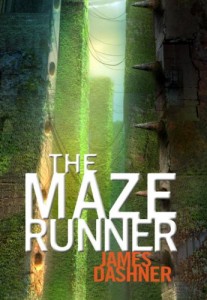I was procrastinating taking a break last Saturday on my NaNoWriMo novel (I won, by the way, yay!), and I found a book report I submitted for my English class back in senior year in high school. I was already a reader then, but I stuck mostly to series and only a few serious novels, so a book report for a project was easy for me. This was an excuse to buy a brand new book, and I decided to choose something that is outside of my normal genre to try it out.
I find it funny that I focused on the characters when I wrote the report. I guess ever since then, I’m a character person? Another funny thing: I never read an Agatha Christie after this one. I guess I never got around picking one up after that, and I’m not a big fan of mysteries in literature for some reason. I like it on TV, but not on paper.
Of course that can still change. Any recommendations?
 The Clocks by Agatha Christie
The Clocks by Agatha Christie
Book Report – written around 2002 :)
The Clocks, written by Agatha Christie is a mystery novel all about a murdered man found in the house of a blind woman by an innocent typist named Sheila Webb. The novel is told in both first and third person, some chapters being Colin Lamb’s narrative, as he tells the story in his own point of view. The novel is full of twists and turns as Detective Inspector Hardcastle, Colin Lamb and the retired Belgian “armchair detective†Hercule Poirot follows the somewhat real clues into the heart of the mystery.
The characters created by Dame Agatha Christie were simple, yet believable and different than characters in other books. Hercule Poirot, for instance, is one very unusual detective. He is an old retired Belgian detective who is an avid reader of books, whether it is kids’ Dr. Seuss or serious mystery novels. He can be quite dull at times, but he has a very surprising personality. He also has this keen nose for things that will happen that has not yet happened, psychological motives of criminals, and a queer taste for tea. When Colin Lamb and Hercule Poirot first saw each other in the novel, Colin described him as:
“My friend, Hercule Poirot, was sitting in his usual square armchair in front of the fireplace. I noted that one bar of the rectangular electric fire glowed red. It was early September, the weather was warm, but Poirot was one of the first men to recognize the autumn chill and to take precautions against it. On either side of him on the floor was a neat pile of books. More books stood on the table at his left side. At his right hand was a cup from which steam rose. A tisane, I suspected. He was fond of tisanes and often urged them on me.†(page 118)
Even the skeptic Detective Inspector Hardcastle noticed an air peculiarity on the kinds of Hercule Poirot:
“We were now settled down in a companionable fashion, with Dick (Hardcastle) glancing surreptitiously at Poirot with the air of a man at the zoo studying a new and surprising acquisition.†(page 233)
He is well known for solving mysteries and pointing to the real criminals in his armchair, without being at the scene of the crime, hence the nickname “The Armchair Detectiveâ€. Everyone knows that is quite impossible, but Hercule Poirot has an unusual analytic mind. He shows intelligence by the use of reading and common sense, which all of us should have. One more thing about Hercule Poirot is that he has a very good sense of humor, which suddenly pops out of nowhere. And he knows a lot of book quotes too.
Another influencing element of The Clocks is the setting of the novel. The entire novel revolves around one place; a street called Wilbraham Crescent. Sheila Webb, the typist, gets called to 19 Wilbraham Crescent, Colin Lamb gets to Wilbraham Crescent in the wrong time and stumbles on the mystery, all possible suspects live in the entire street itself. Even the inquest itself was done on the same street. As described in the prologue:
“Wilbraham Crescent was a fantasy executed by a Victorian builder in he 1880’s. It was half-moon of double houses and gardens set back to back. This conceit was a source of considerable difficulty to persons unacquainted with the locality. Those who arrived in the outer side were unable to find the lower numbers and those who hit the inner side were always baffled as to the whereabouts of the higher numbers. The houses were neat, prim, artistically balconied and eminently respectable. Modernization has as yet barely touched them – on the outside, that is to say.†(page 4)
So more or less, we can say that Wilbraham Crescent is a place for rich or well-to-do people. You wouldn’t suspect that murders could be committed in such a place. As the novel progresses, Wilbraham Crescent becomes a less-innocent street, with either too peculiar or too uncommon neighbors. Perfect for a mystery novel.
The Clocks is highly recommended for readers who like mysteries with mind-boggling clues that lead to the surprising ending. And it’s not only plain mystery; it also has a touch of humor and a little bit of romance to spice it up a little. If you want mystery, and want it now, read The Clocks. It’s worth every page.
Rating: [rating=3]
* Note on the rating: I’m giving the rating based on how I remembered reading it, since it’s been a long time since I last read this one. If I get a chance to re-read this, then I’ll probably update the rating. :)





